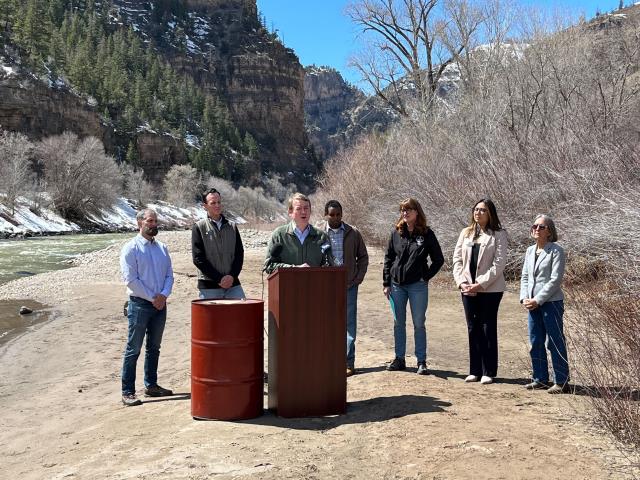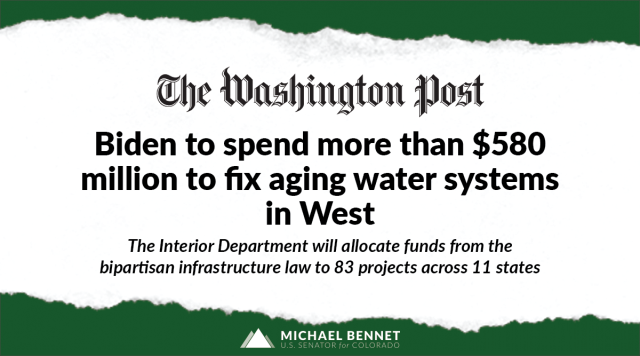|
Hello everyone,
Over the past three months, derailments in East Palestine, Ohio, West Virginia, Washington, and Minnesota have taught Americans two important lessons: derailments are shockingly common – occurring more than 1,000 times per year across the country; and moving hazardous materials by rail can be dangerous for the communities and environments they pass through.
That’s why I’ve been sounding the alarm on the proposed Uinta Basin Railway Project, which would send oil trains through Colorado and along the headwaters of the Colorado River. A derailment along the river would be catastrophic – potentially contaminating our water with cancer-causing chemicals, sparking wildfires, and shutting down major highways.

That’s why this week, I stood with Representative Joe Neguse, Colorado House Speaker Julie McCluskie, State Senator Dylan Roberts and local leaders in Glenwood Springs to say oil trains from Uinta Basin are not welcome in Colorado.
We don’t need a disaster in Colorado to know this is a bad idea for our state, our environment and our economy.

- Michael
HELPING COLORADO ENERGY COMMUNITIES GROW
What’s happening: Communities like Craig, Hayden, and Pueblo have helped power our state for decades. But as Colorado transitions to a clean energy economy, I’ve heard concerns from these communities about what coal mine and power plant closures will do to our main streets, schools, hospitals, and way of life.
What we need to do: Supporting energy communities must be central to America’s energy transition, and we cannot wait until they face economic disaster to act.
Good news: This week, the Department of Energy announced new tax credits from the Inflation Reduction Act to bring clean energy projects to the communities that have powered our state. These tax credits will create new jobs and spur economic development and diversification, so they can prosper in the future.
REBUILDING COLORADO’S WATER INFRASTRUCTURE
What’s happening: For decades, the United States has failed to invest in its critical infrastructure, especially in water projects that deliver the clean, safe drinking water communities rely on.
What I’m doing: Last Congress, I helped include more than $50 billion toward repairing the nation’s essential water infrastructure in the Bipartisan Infrastructure Law.
Good news: Colorado is receiving $68 million from that law to rebuild aging water infrastructure across the state. This funding includes $56 million to complete the Leadville Mine Drainage Tunnel, $1.5 million for the Azotea Tunnel as part of the San Juan–Chama Project, and $10.8 million for the Navajo Nation Municipal Pipeline as part of the Animas La-Plata Project.

STOPPING FOREIGN ADVERSARIES FROM BUYING UP AMERICAN FARMLAND
What’s happening: For too long, Washington has allowed foreign adversaries like China and Russia to buy up American farmland and its precious water resources while our family farmers and our economies became collateral damage.
Why that’s concerning: According to the U.S. Department of Agriculture, Colorado ranks third in the country with the most farmland owned by foreign entities with 1.9 million acres across the state.
What I’m doing: This week, I introduced the bipartisan SOIL Act to strengthen America’s tools to evaluate these foreign purchases and their effect on our national security. This bill would require a review of farmland purchases from buyers in countries that pose a national security risk to the United States, prohibit federal assistance for some foreign-owned land holdings, increase transparency for purchases made by foreign entities, and increase reporting on purchases by China and Russia.
Click here to respond to this email.
 
Unsubscribe |